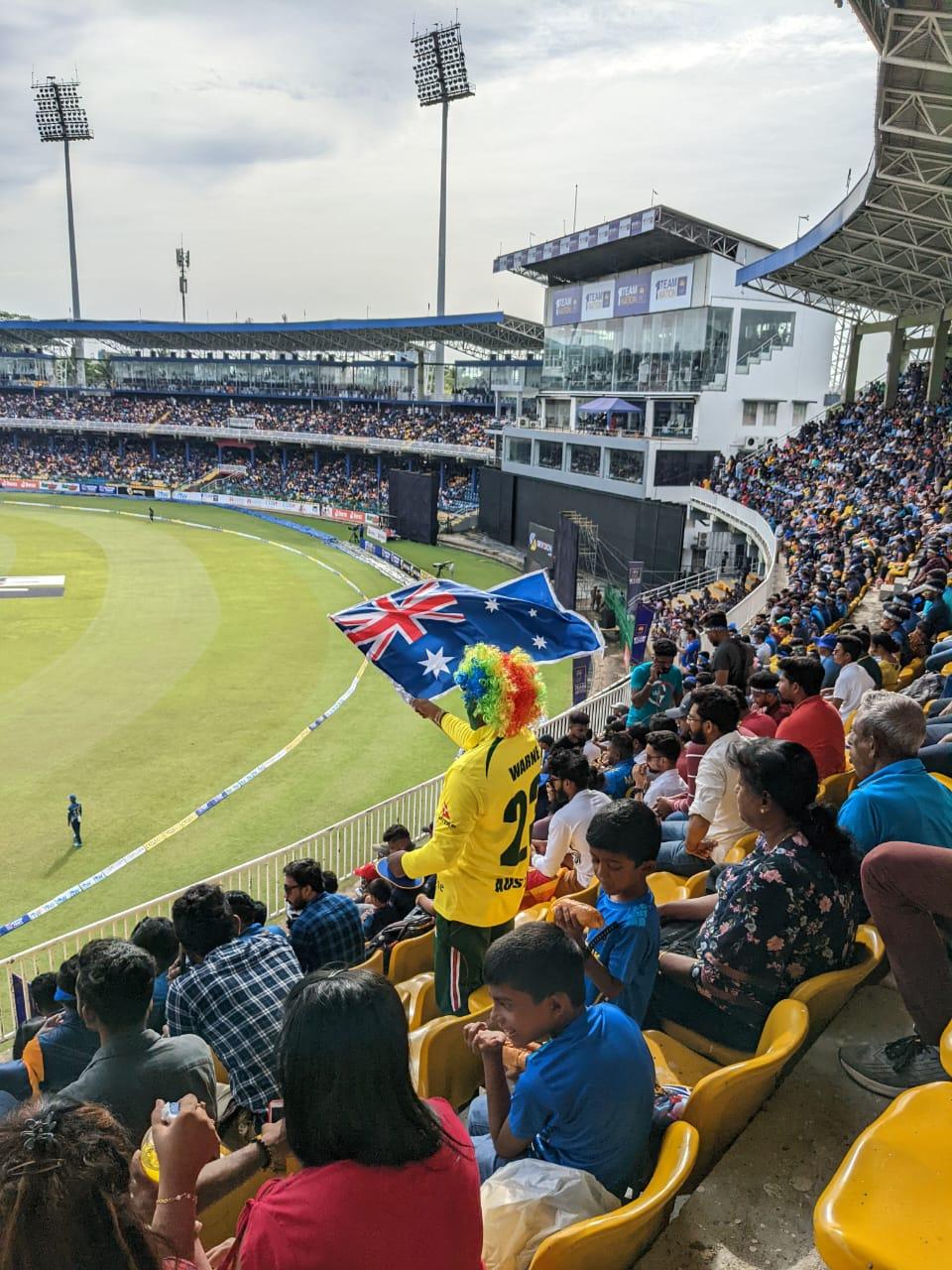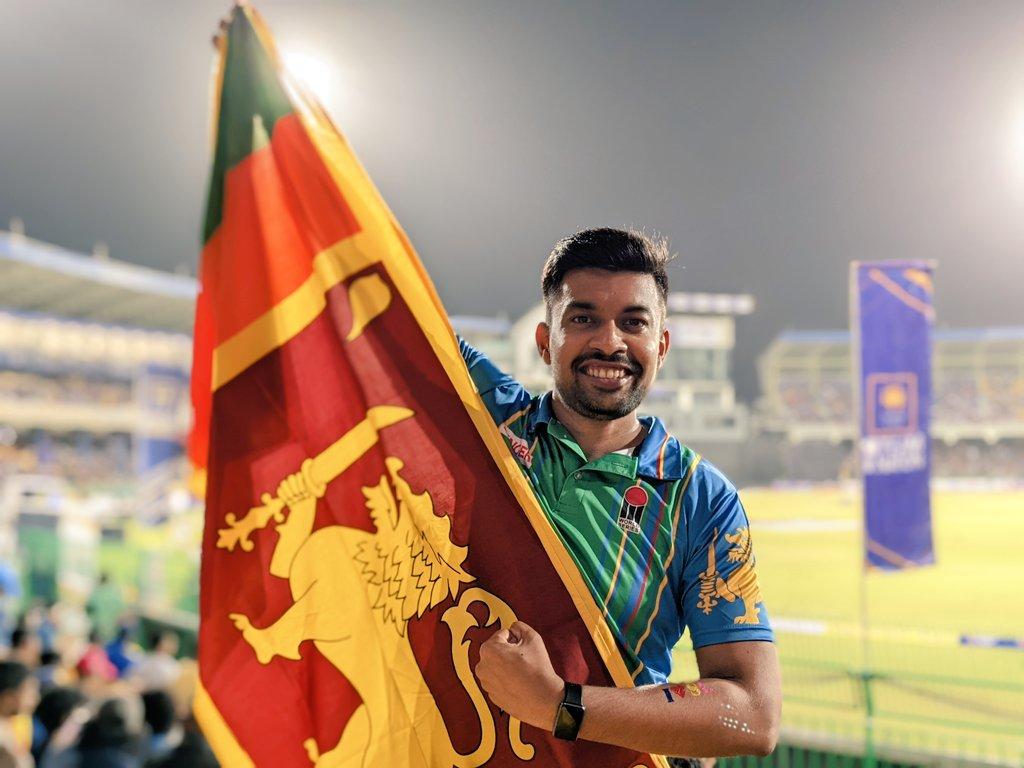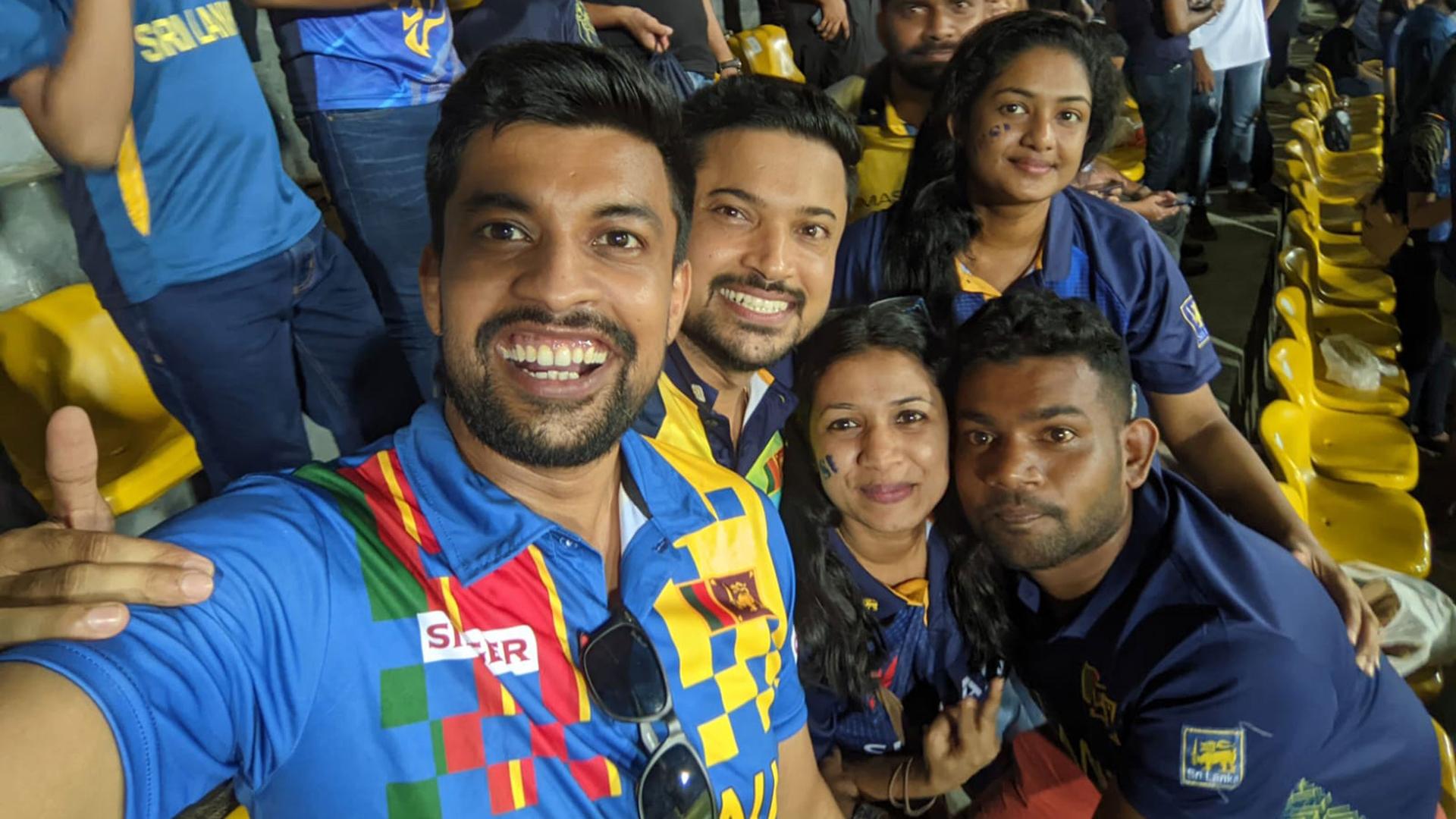When it comes to cricket, Australia and Sri Lanka are usually bitter rivals.
But in late June, after Australia’s cricket team won a match in the Sri Lankan capital Colombo, Australian cricketers got a surprising response from spectators: Sri Lankan fans cheered while wearing the bright yellow colors of the Australian team.
The whole stadium was full of Australian flags and big posters that read, “Thank you, Australia.” Sri Lankan fans were showing gratitude to Australians for coming to their country during one of the toughest times of their history.

For months, Sri Lanka has been in the throes of a debilitating economic crisis that, in recent weeks, has led to political upheaval.
President Gotabaya Rajapaksa fled the country and resigned, after protesters stormed his mansion, angry at his government’s response to the collapsing economy.
Long lines for food and fuel and hourslong power blackouts have become the norm for Sri Lankans.
But that hasn’t stopped the runs and wickets. The sport of cricket has continued on the island, with matches happening alongside protests.
The spectacle of cricket amid the crisis appears striking in drone shots of the matches.
“Every place outside the stadium will be pitch dark [because of the power cuts and] only the stadium will be having lights,” cricket blogger Indoosan Shanthakumaran said.
When the Australian men’s cricket team arrived in Sri Lanka in early June for a six-week tournament, there was a lot of anxiety. Clashes had been breaking out during anti-government protests. There were also ethical concerns about holding an expensive tournament when many Sri Lankans were struggling to put food on the table.
But having the Australian visitors there had a positive impact for many people.
“Sri Lanka was going through turmoil, and Australia agreed to travel here, so it was like a very, very emotional moment for all of us,” Shanthakumaran said.
Sri Lanka’s cricket secretary Mohan de Silva said that Australia’s tour was a “huge endorsement of the fact that Sri Lanka is a safe place.”
There were economic benefits, too. Officials said that revenue from ticket sales would be donated toward public welfare. Plus, desperately needed foreign currency trickled in through TV broadcast rights.
But more than anything, the matches were a welcome distraction.
“When you wake up in the morning, you don’t know how much fuel is left, how to manage. There’s a lot of uncertainty. So, in those times you need something to anchor your day,” cricket fan Aravinthan Arunthavanthan said. Cricket gives people something to look forward to, he added.
During the first match with Australia, Arunthavanthan said the atmosphere in the stadium was electrifying.
“There was a lot of anticipation and expectation and there was an air of hope, and it was surreal to be honest.”
“The vibe was different. There was a lot of anticipation and expectation and there was an air of hope, and it was surreal to be honest. We wanted to be there just to be there, irrespective of the outcome of the game,” Arunthavanthan said.
The first few games didn’t go in Sri Lanka’s favor.
But in late June, Sri Lanka won a crucial match at the very last ball, clinching a series win that caused the whole country to erupt with joy.
When everything else seemed bleak, cricket gave the small island something to celebrate — as it has over the decades, through war and natural disasters.
In 1996, at the height of the country’s civil war, Sri Lanka hosted and won the Cricket World Cup. Then, in 2007, during the last phases of that war, a ceasefire was announced so that people could watch a World Cup semifinal match between Sri Lanka and New Zealand.

Arunthavanthan said that, more than just a game, cricket is something that unites Sri Lanka — a country with deep religious and ethnic divisions.
For many, it can also be a way out of poverty.
“If you see the Sri Lankan team at present, many of them have started from humble beginnings. So, it instills belief, inspiration and hope,” Arunthavanthan said. At age 3 or 4, Sri Lankan kids often get their first bat and ball, he added.
Blogger Shanthakumaran said that Sri Lankan cricketers are very influential and are active members of society. They’ve been vocal about the economic and political crises in the country.
And in 2004, when a massive tsunami in the Indian Ocean wiped out hundreds of villages in Sri Lanka, cricketer Muttiah Muralitharan was at the forefront of relief efforts. Together, he and his on-field rival, Australian spin bowler Shane Warne, helped raise funds for Sri Lankans who had lost loved ones and their homes.
This time, too, Australian cricketers appealed for help for Sri Lanka, releasing videos in partnership with the Australian High Commission in Colombo and with UNICEF.
The Australia tournament came to an end in mid-July, but matches with Pakistan are already underway in Sri Lanka.
Meanwhile, as the country’s lawmakers select new President Ranil Wickremesinghe — the ex-prime minister who is highly unpopular among the public — the future remains uncertain.
But whatever happens in the current crisis, Shanthakumaran said that Sri Lankans are thankful that at least the cricket matches will go on.
The story you just read is accessible and free to all because thousands of listeners and readers contribute to our nonprofit newsroom. We go deep to bring you the human-centered international reporting that you know you can trust. To do this work and to do it well, we rely on the support of our listeners. If you appreciated our coverage this year, if there was a story that made you pause or a song that moved you, would you consider making a gift to sustain our work through 2024 and beyond?
